Ian Gregor Quotes & Sayings
Enjoy the top 8 famous quotes, sayings and quotations by Ian Gregor.
Famous Quotes By Ian Gregor
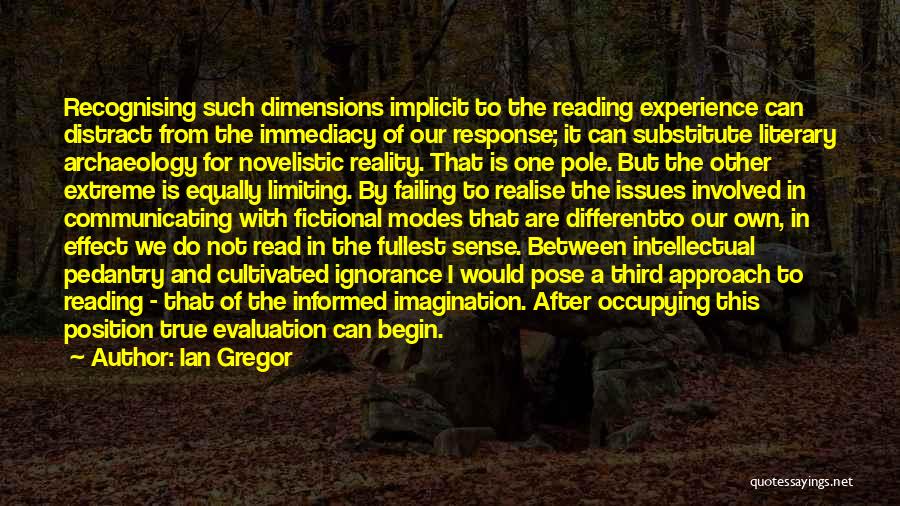
Recognising such dimensions implicit to the reading experience can distract from the immediacy of our response; it can substitute literary archaeology for novelistic reality. That is one pole. But the other extreme is equally limiting. By failing to realise the issues involved in communicating with fictional modes that are different
to our own, in effect we do not read in the fullest sense. Between intellectual pedantry and cultivated ignorance I would pose a third approach to reading - that of the informed imagination. After occupying this position true evaluation can begin. — Ian Gregor
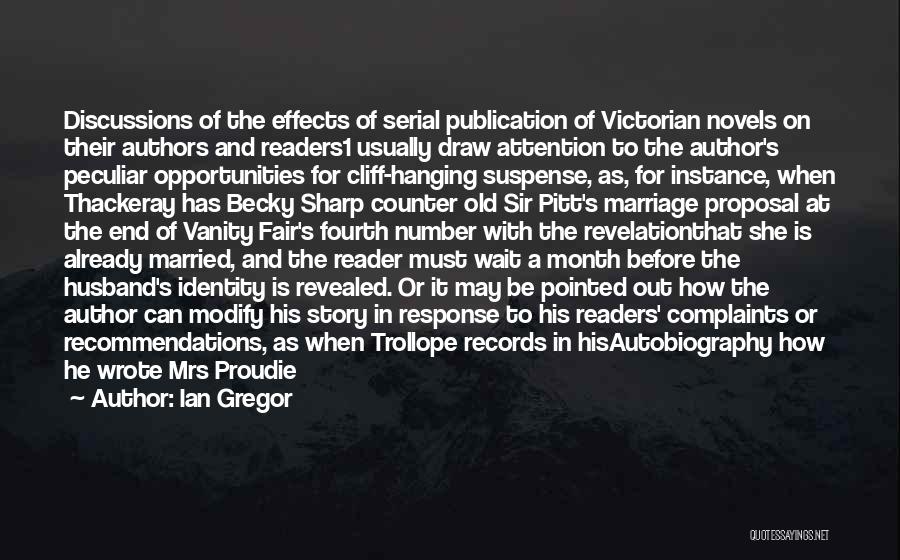
Discussions of the effects of serial publication of Victorian novels on their authors and readers1 usually draw attention to the author's peculiar opportunities for cliff-hanging suspense, as, for instance, when Thackeray has Becky Sharp counter old Sir Pitt's marriage proposal at the end of Vanity Fair's fourth number with the revelation
that she is already married, and the reader must wait a month before the husband's identity is revealed. Or it may be pointed out how the author can modify his story in response to his readers' complaints or recommendations, as when Trollope records in his
Autobiography how he wrote Mrs Proudie out of the Barchester Chronicles after overhearing two clergymen in the Athenaeum complaining of his habit of reintroducing the same characters in his fiction. — Ian Gregor
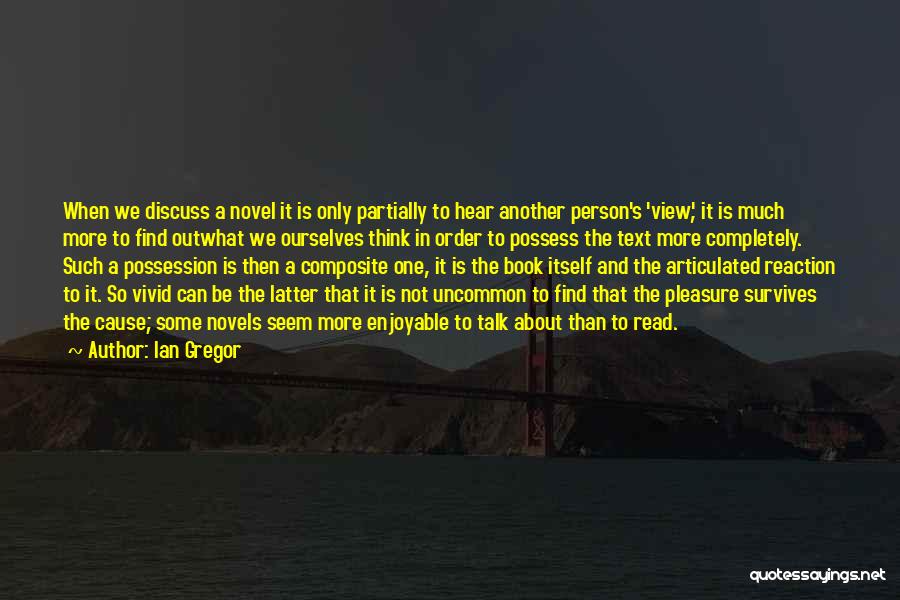
When we discuss a novel it is only partially to hear another person's 'view', it is much more to find out
what we ourselves think in order to possess the text more completely. Such a possession is then a composite one, it is the book itself and the articulated reaction to it. So vivid can be the latter that it is not uncommon to find that the pleasure survives the cause; some novels seem more enjoyable to talk about than to read. — Ian Gregor
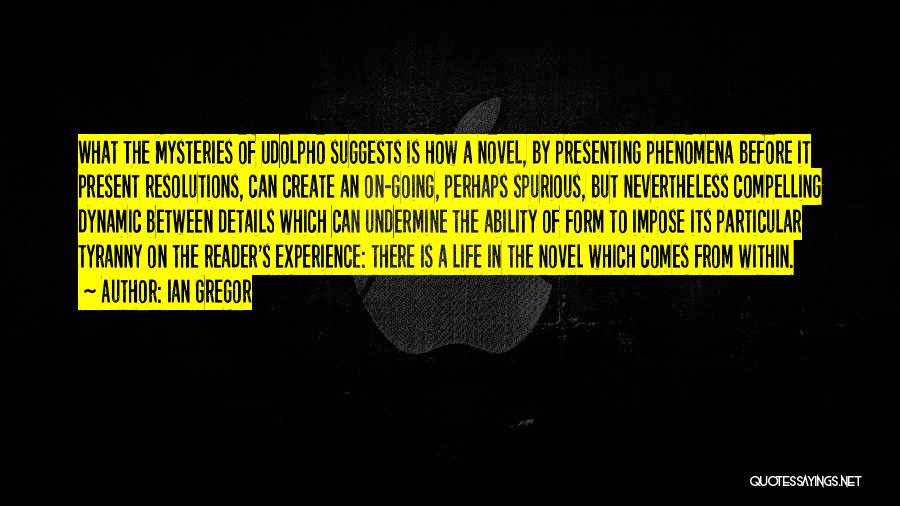
What The Mysteries of Udolpho suggests is how a novel, by presenting phenomena before it present resolutions, can create an on-going, perhaps spurious, but nevertheless compelling dynamic between details which can undermine the ability of form to impose its particular tyranny on the reader's experience: there is a life in the novel which comes from within. — Ian Gregor
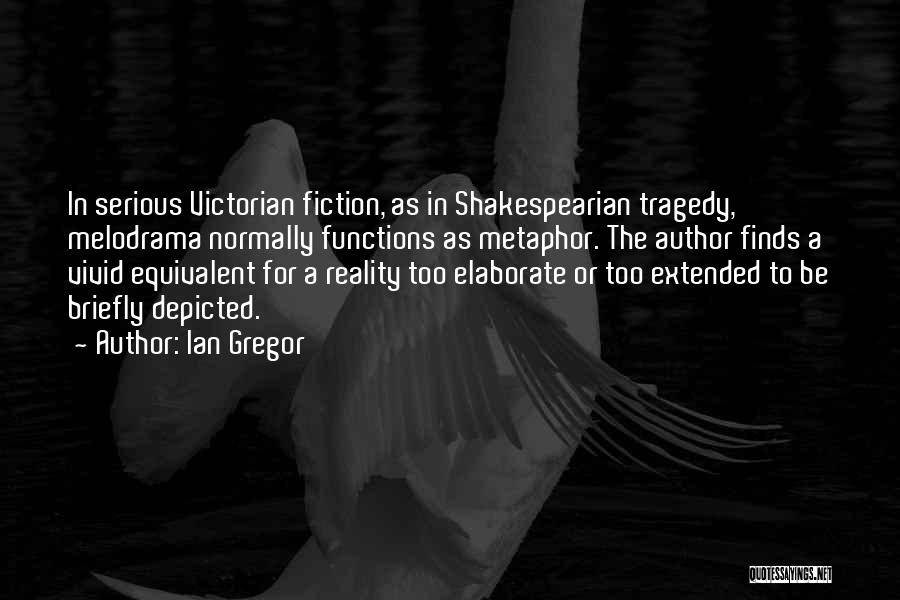
In serious Victorian fiction, as in Shakespearian tragedy, melodrama normally functions as metaphor. The author finds a vivid equivalent for a reality too elaborate or too extended to be briefly depicted. — Ian Gregor
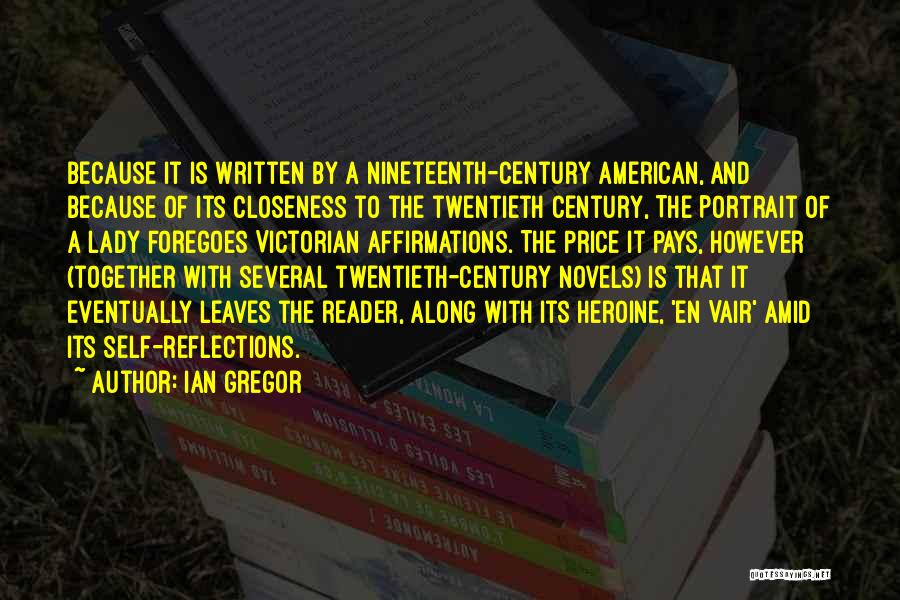
Because it is written by a nineteenth-century American, and because of its closeness to the twentieth century, The Portrait of a Lady foregoes Victorian affirmations. The price it pays, however (together with several twentieth-century novels) is that it eventually leaves the reader, along with its heroine, 'en Vair' amid its self-reflections. — Ian Gregor

Whether he chooses a 'scholarly' or a 'popular' edition the modern reader is likely to have his judgement influenced in advance. Almost invariably he will be offered an assisted passage. Footnotes, Forewords, Afterwords serve notice that a given text is intellectually taxing - that he is likely to need help. Such apparatus is likely to
be a positive disincentive to casual reading. But a cheaper edition may offer interference of another kind. Reminders, in words or pictures, of Julie Christie's Bathsheba Everdene or Michael York's Pip can perhaps create a beguiling sense of accessibility. But they
may also pre-empt the imaginative responses of the reader. — Ian Gregor
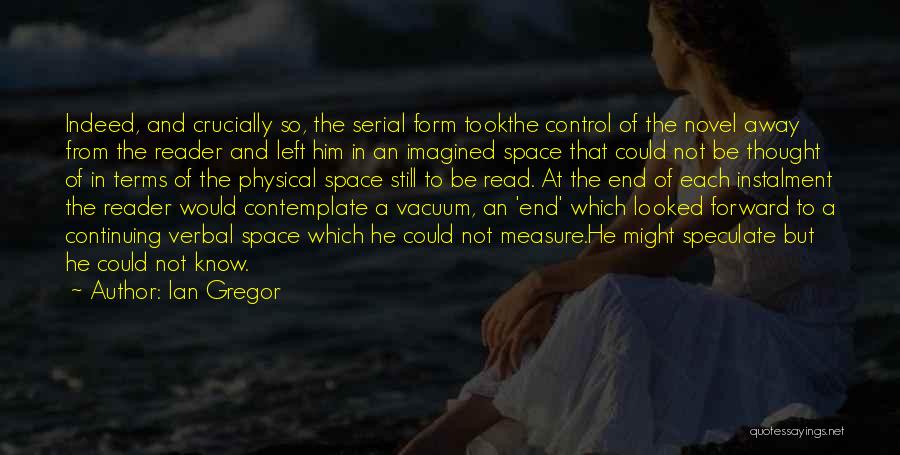
Indeed, and crucially so, the serial form took
the control of the novel away from the reader and left him in an imagined space that could not be thought of in terms of the physical space still to be read. At the end of each instalment the reader would contemplate a vacuum, an 'end' which looked forward to a continuing verbal space which he could not measure.
He might speculate but he could not know. — Ian Gregor





